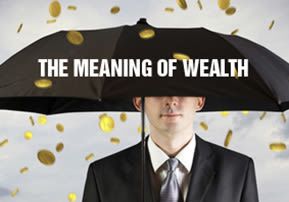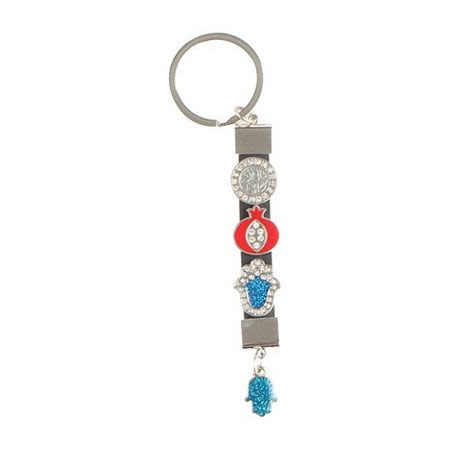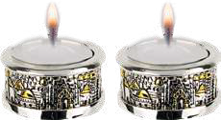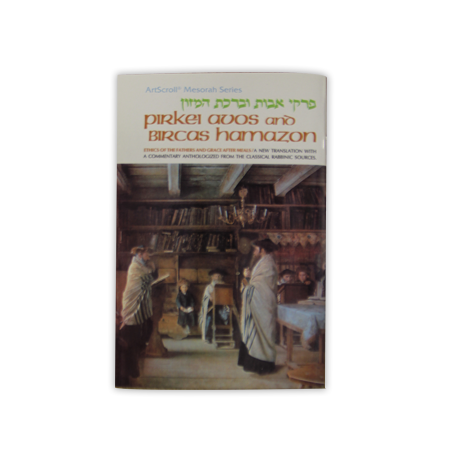
Vayishlach: The Meaning of Wealth
Esau's definition of wealth is based on how he compares to others; is someone really wealthy when his wealth depends on others having less?

Can you name any of the richest people in the world? If you answered Bill Gates or Warren Buffett, we would be in agreement. However, it seems that our Sages wouldn't have necessarily agreed to that answer. "Who is rich?" they ask, "One who is happy with his portion in life." I don't know but I wonder if Mr. Gates or Mr. Buffett would have satisfied their criteria.
Honestly, I have at least two problems with our Sages' teaching. One is that it sounds very quaint but seems far from our reality. From their words, one gets a picture of some humble, poor saint eating his dry bread and sipping a little lukewarm tea and somehow making himself content with the precious little he has. Is he really wealthy? The other problem is that it seems like an antiquated picture of what real wealth is all about. Maybe in the world of the ancients the above definition was adequate, but it seems very far from the fabulously wealthy we know about today. What, in fact, were our sages teaching us about wealth? In short the question is, what is the real definition of wealth: having a lot or having what one needs?
This issue is reflected in this week's Torah reading. Jacob, after many years away from his family, returned to the land of his birth but not before encountering his brother Esau. Years before, Jacob fled from his brother  Esau and upon his return Jacob needed to contend with him and his lingering hatred. Jacob sent a special "peace offering" to his brother who initially refused it. "I have a lot, take back that which is yours." Jacob ultimately convinced his brother that he didn't need the gift, "because I have all I need." Seemingly, the two definitions of wealth, having a lot or having what one needs, are expressed by Esau and Jacob. What is the difference between these two definitions of wealth?
Esau and upon his return Jacob needed to contend with him and his lingering hatred. Jacob sent a special "peace offering" to his brother who initially refused it. "I have a lot, take back that which is yours." Jacob ultimately convinced his brother that he didn't need the gift, "because I have all I need." Seemingly, the two definitions of wealth, having a lot or having what one needs, are expressed by Esau and Jacob. What is the difference between these two definitions of wealth?
I have a trick question. Why are Bill Gates and Warren Buffett rich? Answer: Because they have a lot of money! Sorry, that's only half correct. (I told you it was a trick question.) What if you and I and our friends had 50 billion dollars each, would they still be rich? What if they decided to transfer all of their wealth into diamonds and precious jewels and then got shipwrecked with no way to be reached. If they were stranded, would they still be among the world's richest?
The second part of the answer of why they're the richest people is because you and I don't have 50 billion dollars. Their status of being wealthy is based on the rest of the world being poorer. So the world's richest men and women should be thankful to us because without them they wouldn't be rich! That's how Esau views the world: I have a lot…. more than anyone else. His definition of wealth is based on how he compares to someone else. He's not intrinsically wealthy, his wealth is dependent on others having less. His definition of self is based on and in contrast to everyone around him. Basing a life on how we compare to others is not a great formula for personal satisfaction and peace of mind.
The other way of relating to wealth is what a person has irregardless of anyone else on the planet. Jacob relates to his property with the understanding that Hashem gave him whatever he needs to perform his task in this world. And through this he taught his descendants that the Creator has apportioned for every person just what they needs to actualize themselves and fulfill His will. Whether someone's neighbor has a lot of money or not is irrelevant to one's own true status of being "rich". With such a world view, there's no need, or better, no room for jealousy.
This is what we are being taught by our Sages. "Who is rich? One who is happy with his portion in life." My "worth" is not defined by others, only by my appreciation of the unique gifts that Hashem has bestowed upon me. I don't look to the world around to evaluate if I'm "wealthy" or not.
The Western world, which primarily descends from Esau, bombards us with the message of "relativity", that our individual value and worth is dependent on an external standard set by individuals who have had "relative" success. And paradoxically their success is based on having quantitatively more than others. So Western society is caught in a Catch 22 between the haves and have-nots in determining who's wealthy. This concept carries over to many other qualities like strength, happiness, and honor, to mention just a few. In Esau's world it's all about how you compare to someone else. In such a world, we witness that a deep satisfaction with life is hard to come by.
Fortunate are we that Hashem, through His Torah and its Sages, have taught us the path to joy and peace of mind. The Heavenly designed gifts that have been bestowed upon each one of us are the tailor-made endowments for accomplishing our unique paths in this world. Could anyone be richer than someone given his own one-of-a-kind gifts from Hashem?
* * *
Rabbi Dovid Charlop is on the teaching staff of the Neve Tzion Yeshiva in Telzstone, Israel. You can see more of Rabbi Charlop's articles here.












Tell us what you think!
Thank you for your comment!
It will be published after approval by the Editor.